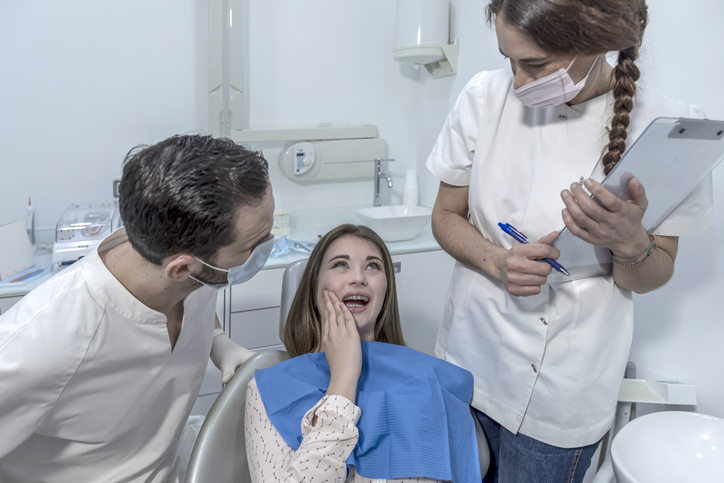Sedation Dentistry in Springfield, Massachusetts

Understanding Dental Anxiety and the Need for Sedation Dentistry
Dental anxiety is a common phenomenon experienced by many people, with the fear of dental procedures ranking among the top reasons for avoiding dental visits. This fear can stem from bad experiences, fear of pain, or simply a general unease in the dental environment. Acknowledging and addressing dental anxiety is essential to ensure proper oral health. Sedation dentistry enables patients to undergo necessary dental treatments while minimizing their anxiety and discomfort, doing it an invaluable service for those struggling with dental fear.
Types of Sedation Techniques Used in Springfield Sedation Dentistry
In Springfield, dentists utilize various sedation techniques to cater to the individual needs of their patients. From mild to deep sedation, these techniques are designed to help individuals feel comfortable and relaxed during dental procedures.
Oral Sedation
Oral sedation involves the administration of sedative medications in pill or liquid form. These medications help patients feel calm and relaxed during dental treatments. Oral sedation can range from mild to moderate sedation, depending on the dose prescribed by the dentist. This method is typically used for patients with moderate anxiety or dental procedures that may be slightly more intrusive.
Nitrous Oxide
Commonly known as “laughing gas,” nitrous oxide is a mild form of sedation that provides a sense of relaxation and euphoria during dental procedures. Nitrous oxide is administered through a mask placed over the patient’s nose, allowing them to breathe in the gas, which works quickly to ease anxiety and discomfort. The effects of nitrous oxide wear off quickly after the procedure, making it an ideal option for those who require minimal sedation or need to resume their daily activities soon after their dental appointment.
Intravenous Sedation
Intravenous (IV) sedation is a more profound form of sedation in which medications are administered directly into the bloodstream through an IV line. IV sedation provides a deeper level of relaxation and can be adjusted as needed throughout the dental procedure. This method suits patients with significant dental anxiety or those undergoing more complex dental treatments.
Benefits of Sedation Dentistry for Springfield Patients
- Reduced anxiety and stress: Dental anxiety can make patients feel overwhelmed and on edge during dental appointments. Sedation dentistry helps alleviate these feelings, allowing patients to feel more at ease while receiving the essential treatment for their oral health.
- Pain management: One of the primary concerns for many individuals is the pain associated with dental procedures. Sedation dentistry helps to manage pain effectively, making the experience more comfortable and less daunting for patients.
- Efficiency in dental procedures: Patients who are anxious and tense often require more time for dental treatments, prolonging the procedure and increasing their discomfort. Sedation allows patients to remain calm and relaxed, enabling dentists to perform procedures more efficiently and precisely.
- Gag reflex control: A strong gag reflex can make dental procedures challenging and uncomfortable for the patient and the dentist. Sedation helps to suppress the gag reflex, resulting in a more pleasant experience during treatment.
- Memory suppression: For some patients, the mere thought of a dental procedure can be stressful or upsetting. Sedation dentistry enables patients who prefer not to remember the details of their dental treatments by suppressing their memory of the procedure, further contributing to a more positive overall experience.
Types of Dental Procedures Commonly Performed with Sedation Dentistry in Springfield
- Routine dental maintenance: Even minor treatments like cleanings and fillings can provoke anxiety in some patients. Sedation can help ease their nerves and make these routine procedures more manageable.
- Root canals: Often deemed an uncomfortable procedure, root canals can be made more bearable with the help of sedation dentistry.
- Tooth extractions: Whether a simple extraction or removing a problematic wisdom tooth, sedation helps manage pain and anxiety during the procedure.
- Dental implants: As a more invasive procedure, dental implants may require more profound sedation techniques to ensure patient comfort.
- Wisdom tooth removal: Whether impacted or causing discomfort, sedation dentistry can significantly assist with the removal process for wisdom teeth.
Pediatric Sedation Dentistry in Springfield, Massachusetts
Sedation Dentistry Costs and Insurance Coverage in Springfield
Top 4 Sedation Dentistry in Springfield
Dental Specialties of Springfield
Dental Specialties of Springfield practice has been providing high-quality orthodontic care to their patients in Springfield and and the surrounding areas since 2007. They prioritize to provide you with the highest quality orthodontic care and make sure that you will leave us with the biggest confident smile.
- (413) 783-0452
- 5 town plaza, 366 Cooley St, Springfield, MA 01128
- https://www.dentalspecialtiesofspringfield.com/
Sunshine Dental LLC
At Sunshine Dental LLC offers comprehensive dental treatment from a dental exam, Xrays, and teeth cleaning to teeth whitening, dental implants, dental bridges, and even Invisalign
- 413-372-5565
- 1245 Boston Road, Springfield, MA 01119
- https://www.sunshinedentalmass.com/
Taylor Street Dental
Taylor Street Dental offers General, Cosmetic, or Implant dentistry procedures such as teeth whitening, dental veneers, or dental implants.
- (413) 781-7645
- 41 Taylor St 4th Floor Springfield, MA 01103
- https://www.mygreatsmile.com/
Apex Dental Associates
Apex Dental Associates provide many restorative and cosmetic treatments, including dental implants, dental veneers and sleep apnea therapy.
- 413-782-6777
- 275 Bicentennial Highway, #207, Springfield, MA 01118
- https://www.apexdentalassociates.com/
Patient Safety and Choosing a Qualified Sedation Dentist in Springfield
- Do they have experience working with patients with similar dental anxieties or medical histories?
- What safety protocols are in place during sedation procedures?
- Are staff members trained and skilled in monitoring sedated patients?
- What is their emergency preparedness plan in case of complications during sedation?

